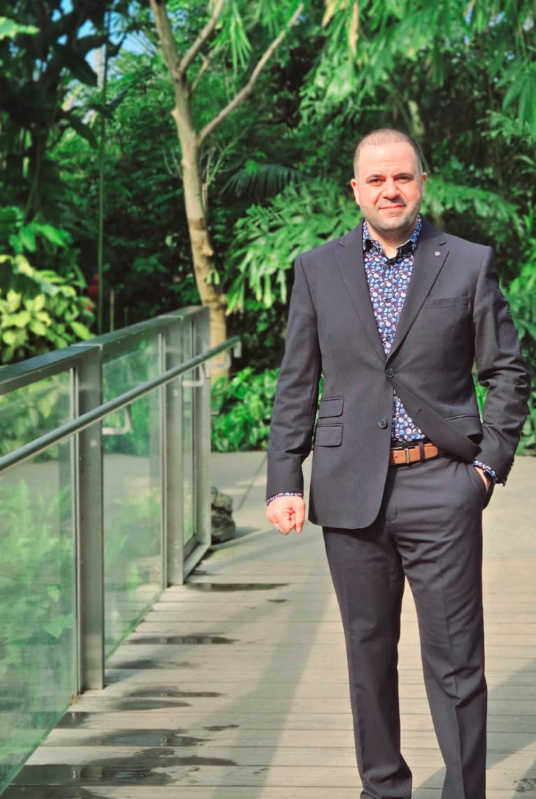
Designed out of a passion for the transformative power of artistic expression, the workshop created space for story writing, sharing, and reflection. Participants were encouraged to think deeply about their own personal narratives and how stories shape both identity and community.
Born and raised in the West Bank, Palestine, Dr. Hawamda currently serves as the Anti-Racist Education Professional Learning Initiative Coordinator with the Louis Riel, River East Transcona, and Winnipeg School Divisions. He completed his PhD in Peace and Conflict Studies at the University of Manitoba and has become a leading voice on the power of dialogue and the importance of listening, sharing, and respecting diverse narratives. Through storytelling, he continues to bring communities together and humanize the Palestinian experience.
Dr. Hawamda shared that, growing up, storytelling was both a means of survival and an affirmation of identity. Remembering, resisting, and reimagining, he said, are pathways to healing. Even in hardship, stories are told not only to share pain, but to hold onto joy — a profound act of resistance. He explained that the world is not just where we live, but where we share our humanity — standing with those who have lost their voices, beside those who are unable to speak.
Raised in Nablus, a city that predates Roman times, he recalled his grandmother’s daily questions: “Have you shared stories of the land today?” and “What did you learn from the land today?” For many Palestinian-Canadians, storytelling remains a vital practice — one that grounds them in their shared history, connects them to the present, and carries their voices forward.
When asked how he navigates sharing deeply personal or painful stories in public, especially with audiences holding differing perspectives, Dr. Hawamda emphasized the need to listen with gentleness and tenderness. To him, listening to a story means becoming part of it. He echoed the phrase, “My story awaits,” meaning that his story awaits the listener’s presence. For those who disagree, he invites them to have tea with him, because his goal is to connect, not to convince.
Dr. Hawamda reminded participants that true growth happens in discomfort. “I don’t owe my trauma to anybody,” he asserted, challenging the expectation that Palestinian identities must always be framed through suffering, trauma, and occupation. “When people deny me my humanity,” he said, “I ask them if they’ve seen my community.” For him, balance lies in vulnerability without exploitation, openness without erasure.
During his visit, Dr. Hawamda’s greatest hope was to spark reflection on the difference between safe spaces and brave spaces — where learning about one another’s experiences and traumas becomes a shared act of humanization. As he explained, “Dehumanization happens because we don’t know each other.” He drew a distinction between “the story of me” — how others define you — and “my story” — how you define yourself.
He also reflected on the limitations of colonial academic settings, which often feel detached from lived realities. As his grandmother would ask, “What do you think you know that the olive tree doesn’t know?” For Dr. Hawamda, this question is a reminder to return to community stories as sources of knowledge, healing, and pedagogy.
Dr. Hawamda is also the founder of Sadaa (صدى), meaning “echo” in Arabic — an organization that seeks to amplify marginalized voices and ensure that stories are heard and carried across distances. Through Sadaa, he aims to create “mountaintops” from which stories can echo into the world. He described a recent moment in a local market, where a stranger invited him to sit and hear the story of an old Ottoman-era home. “My story,” he said, “is not meant to compete with others, but to connect with them.”
Dr. Hawamda extends open invitations to all who wish to learn about Palestine — to eat together, to share stories, and to celebrate a shared humanity without altering his truth for anyone. “If Palestinian realities make you uncomfortable,” he said, “let’s have a conversation.”